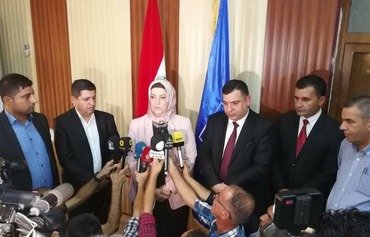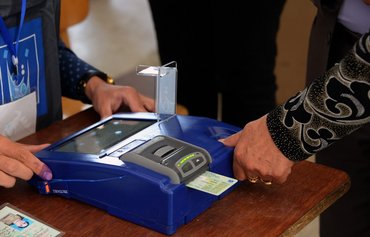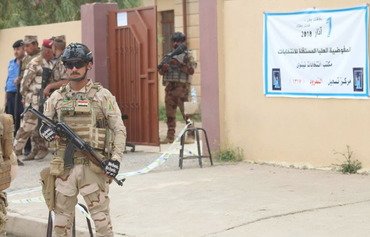Iraq's Independent High Electoral Commission (IHEC) has begun to prepare for Ninawa's provincial council elections, slated to take place later this year, officials told Diyaruna.
The elections will take place amid rising popular anger against the local government over delays in reconstruction projects, rampant corruption and the growing influence of Iran-backed militias, they said.
"The commission’s office in the province has begun taking early operational steps in preparation for the upcoming provincial council elections," Ninawa electoral commission office spokesman Farhan al-Kiki told Diyaruna.
The elections are slated to take place in November, he said.
The office has begun training its employees, he said, teaching them how to update the biometric voter registration database and handle all election day procedures.
These measures will "ensure a sound voting process, free of the problems and impediments the commission faced in previous elections", he said.
Al-Kiki called on all voters registered in Ninawa to visit the province's registration offices and update their electoral data, in order to ensure the commission compiles a complete voter register.
This will ensure residents are able to exercise their right to vote, he said.
Demands to expel armed militias
The elections "must yield a solution to the rampant corruption and proliferation of militias and economic offices affiliated with them", Mosul journalist and civil activist Laith al-Rashdi told Diyaruna.
Deteriorating economic conditions and the poor state of services have left Mosul residents "uninterested in the political process and unwilling to participate in the elections unless they entail radical change", he said.
Upcoming elections must lead to the removal of corrupt politicians and bring in leaders "who care about the province and want to improve services and the humanitarian situation in it", he said.
"Any elected national leader should take it upon himself to expel the armed militias and close down their economic offices, which are eroding the city's already dilapidated resources," al-Rashdi added.
He expressed hope that the elections would be a true reflection of the will of local residents, "who are afraid to express their opinions today for fear of being arrested by the militias".
'Ballot box is the solution'
The people of Mosul experienced difficult years under the control of the "Islamic State of Iraq and Syria" (ISIS), which demoralised many and turned residents away from political engagement, political analyst Ghanim al-Aifan told Diyaruna.
He called on the federal government to convince Mosul residents that the ballot box "is the solution to establishing a local government that can provide services, end displacement and redress the tragedies of the past period".
He also called on the government to examine the reasons why citizens refrained from taking part in previous parliamentary elections, and find possible solutions to encourage Mosul residents to vote in the upcoming elections.
Al-Aifan warned that some political parties will use their influence and money to advance candidates who do not measure up to to the aspirations of the people.
Residents of any city that emerges from a major war require time to recover before delving into elections, he said, adding that the federal government should work on preparing the people of Mosul ahead of the elections.

![The Office of the Independent High Electoral Commission in Ninawa holds a training course for its employees on updating voter register records. [Photo courtesy of IHEC Ninawa office Facebook page]](/cnmi_di/images/2019/04/16/17612-Iraq-Ninawa-training-600_384.jpg)







We haven’t taken our rights following the 2014 election. I have a work contract. You’ve taken my rights. You’re exactly like the "Islamic State of Iraq and Syria" (ISIS); if somebody has connections, everything will be OK, but those who don’t have connections, have God.
Reply2 Comment(s)
These are beautiful words. However, the speaker knows about the quota system at the commissioners’ office. So, what does he say about it?
Reply2 Comment(s)